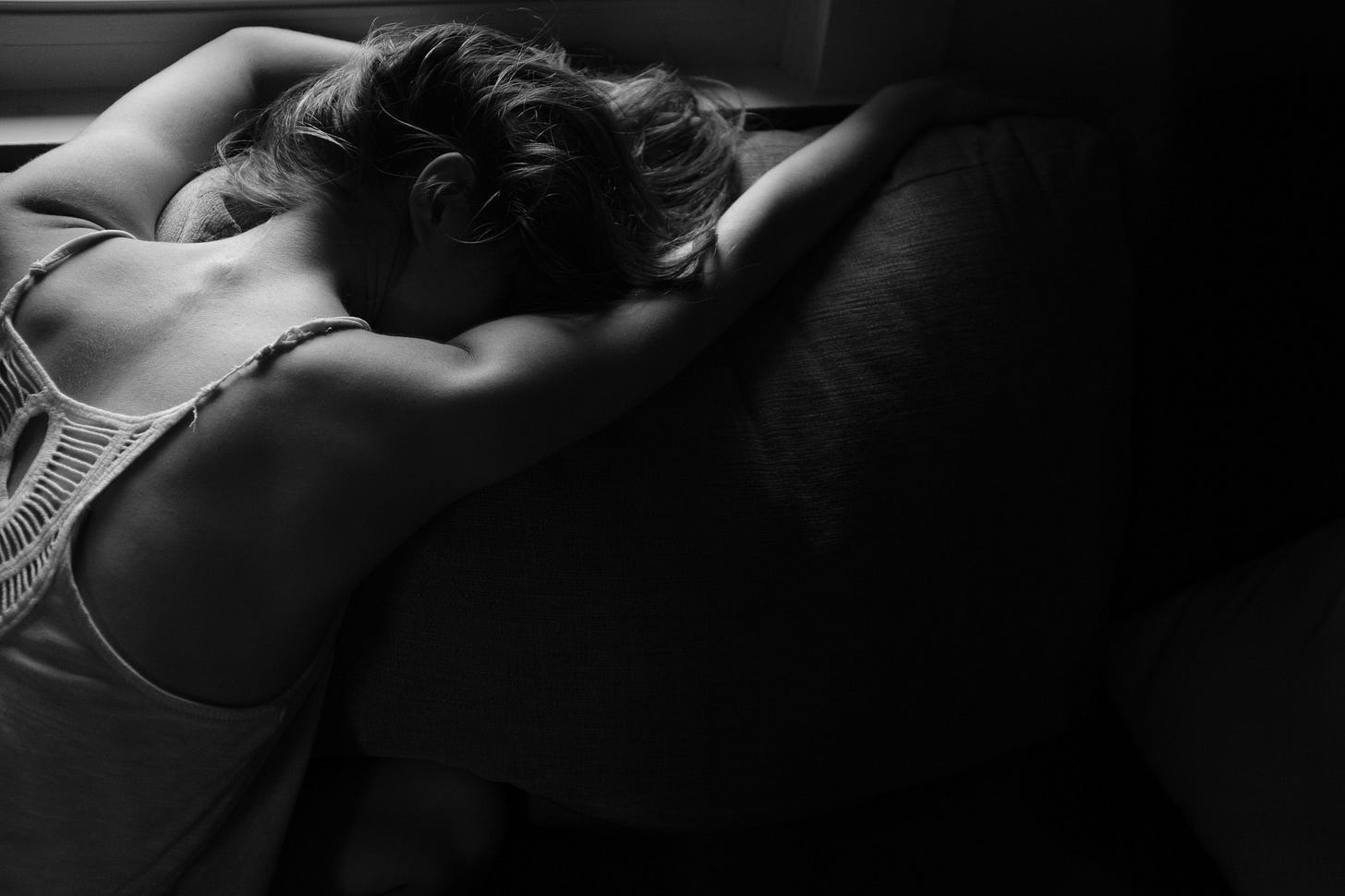The Strange Phenomenon of Taking Pleasure From Pain
We seem to take a certain obscene pleasure from painful experience. There's a certain beauty and revelation in it.
I get it when I run hard, or when I do a strenuous workout. It hits me hard, so much so that I seem to disappear. All there is is the experience of pain in my body, and the personality of me seems to recede. I expel every ounce of my physical self, pushing the prowler or pressing the bar overhead that my central nervous system bursts its banks. Cells in my legs, torso, arms and head are exploding like popping candy under my skin — I can feel them.
I can’t speak. My eyes are closed tight, and my lungs are heaving so hard it feels like my chest will explode. Eventually, it subsides, and the recovery begins. Afterwards, my capacity has increased. I have more to give the next time around.
It feels the equivalent of a forest fire, and for days after the workout, I’m walking like I have two short planks shoved down my jeans. I can barely touch my own nose; such is the tightness in my triceps.
And I love to talk about it, especially with people who share my pain.
People everywhere like to share their horror stories, their illness, their drunkenness and their humiliations. They’ll say; “don’t tell anyone else, but wait until I tell you…” when what they mean is “please tell everyone you know because I secretly want them to know”.
Irish mothers are especially good at indulgence in suffering.
Jacques Lacan, the French psychoanalyst, called this seeking of pleasure in pain, a “backhanded enjoyment”, or jouissance. It is an indulgence in the morbid, the dark side of the soul and we do it because deep down we already know that we are both the darkness and the light.
“[Jouissance] begins with a tickle and ends with a blaze of petrol” — Jacques Lacan, Seminar XVII
We are night and day, good and evil, happy and sad all wrapped up in this psycho-physical being, but society does not allow the acknowledgement of it. It is taboo to talk about these things gloriously. So we pretend that these experiences are awful, that we’d prefer not to have them, when in fact we crave them.
We make movies about murder and rape. We glorify war, and the sacrifice young men and woman make overseas in our name. We hide our faces behind our hands at scary scenes yet peek out through our fingers. We take pictures of gory accident scenes, and we send them to our friends and say, “oh how awful”.
In all expressions of art and creativity, we can see the pleasure taken in pain. The darkness must find a means to be expressed, and the artist becomes the mouthpiece. Painters, writers, visual artists of all kinds are perhaps best equipped to manage these forces, while the rest of us struggle.
Lacan says that jouissance and outward open desire find balance in each other. Even in private contemplation, reflection on a difficult time in our lives, there seems to be a beauty in the heartache. From our current standpoint of having experienced the trauma, we can appreciate its necessity. We can cry yet have a smile on our face and have acceptance of it all.
There’s no getting away from it, we are both sides of the coin, and these means of giving vent to the darkness are necessary, if only on a continued gradual basis. Some argue that not to give vent to the darker part of ourselves would, and indeed does, bring about immense horrors.
Such is the nature of the human-animal.
Thanks for taking the time to read my stuff. If you enjoy Sunday Letters, consider supporting my work. I’m on Twitter if you’d like to follow me there. Oh, and there’s the Sunday Letters Podcast.


